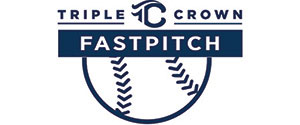Five Reasons Why Many High School Softball Players
Will Never Play College Ball…
& How to Prevent This from Happening to You!
By Jason Klein
College Bound Sports
Many outstanding softball players are often forced to end their careers prematurely. They never have the opportunity to suit up in a college uniform. It’s important to understand the main reasons why this happens in order to avoid a similar fate. Although the recruiting process can be difficult for many prospective college softball players, it doesn’t have to be. Improve your chances of playing college softball by avoiding these common mistakes:
#1 “I only want to play with the “big girls.”
If you only focus your search on the country’s elite NCAA D-I schools like Florida State, Arizona, Stanford, and Louisiana State, you will eliminate hundreds of great schools that may need a player like you. “I’d say 75% don’t research schools like they should,” said Amy Hayes, Head Coach at Boston University. “I tell them to look at it like a 21-year-old adult, rather than a 17-year-old kid. In four years, I want them to look back and see that they made the right decision. They have to pick the best fit for them, not the biggest name. College is expensive, you want to make sure you do the right thing.”
Be realistic about your abilities. After you complete a target list of schools that interest you, visit their websites and see how you might fit into their softball program. Compare your accomplishments to those achieved by the school’s current players. Also, go watch them play. Seeing them in action may be the best way to evaluate how their ability level compares to your own. With over 1,400 different college softball programs in the United States, you have a lot of choices. You should avoid rushing to judgment. Choose a school where you can contribute on the field. Riding the bench or being cut could lead to a miserable college experience. The most important thing is for you to play the game you love, regardless of the name across your jersey.
#2 “My stats are so impressive that college coaches will come scout my games.”
A high batting average or lofty won-loss pitching record is not enough to attract a recruiter’s attention. High school stats are a direct result of the competition you play against. They don’t tell the whole story. College coaches place more emphasis on evaluating your skills – speed, arm strength, fielding mechanics, and bat speed – and projecting how you can contribute to their program two or three years from now. Ruth Gibbs, Head Coach at Muhlenberg College, focuses on less tangible attributes.
“Character and integrity are most important to me at this level,” she said. “I look for players who will pick up their teammates after an error. I look at how players carry themselves on and off the field, and I look for girls who will do whatever it takes for the team to succeed.”
You should focus on which areas of your game need improvement and work hard to achieve your goals. Be the first on the field and the last to leave, ask your coach to critique your offensive and defensive skills, watch instructional videos, lift weights and stay in top physical condition.
Take a pro-active approach and let schools know you want to be recruited. Send letters of interest to coaches on your target list. Let each coach know you would like to attend her school for academic reasons and play for her team. Personalize your letters and show that you have a genuine and specific interest in the school. Coaches won’t recruit someone they haven’t heard of. Let them know who you are.
Also, take your game to them by attending top showcases, college prospect camps, and high-profile summer tournaments. Produce a highlight videotape and send it to coaches who can’t see you in person. The more coaches who watch you play, the more opportunities you will have.
#3 “My high school coach is going to get me a scholarship.”
Many high school coaches don’t have the necessary time to contact colleges, write letters, or solicit offers on your behalf. Some may devote all their time to the “star player” on your team because she’s the easiest one to promote. Others may not even know where to begin.
Form a support group consisting of your parents, guidance counselor, high school and summer league coach. Seek their advice, but remember, it’s your future on the line, not theirs. You don’t have to go through this process alone, but take responsibility for your search!
It’s also important to understand that softball scholarships are rare. NCAA D-I schools only have 11.7 softball scholarships to distribute. D-III schools don’t award any athletic scholarships. Explore other aid opportunities like academic scholarships, grants, and loans.
#4 “I’ll wait until my senior year to start thinking about college.”
You should begin college preparation the moment you reach high school. Academically, you should take the most challenging courses you can handle, work hard to improve your GPA, and meet with your guidance counselor often to discuss your options. You should also visit many college campuses to determine what you like in a school. Remember, you are not only choosing a place to play softball, you are choosing a new home for the next four years.
On the field, it’s easy to think a big senior season will catch the interest of many top coaches. Unfortunately, by the time your senior season is underway in April, you will probably already know where you are going to school. While it’s important to have a productive senior year, understand that your junior season and summer are much more important from a college coach’s standpoint.
Start developing your target list of schools by your sophomore year. This will be a work in progress, as your interests will change. Only include schools on your list that meet your academic, social, and geographic needs. Don’t just focus on softball.
#5 “I don’t have to worry about my grades; I’m an athlete.”
Success in the classroom often breeds success on the field. Most coaches at four-year schools won’t even consider players who fall below their admission departments’ academic requirements.
“Academics is the number one deciding factor between two players of equal abilities,” said Bob Young, Head Coach at Indianapolis University. “I’ll even take the player with less physical ability because of academics. If you don't make the grades you can't play.”
The better student is less of a risk to fail out of school or become academically ineligible. Do whatever it takes to improve your marks. Hire a private tutor, form a study group with your friends, ask your teachers for extra help, and take a college entrance exam prep course. College coaches recruit players who understand the importance of their education.




























